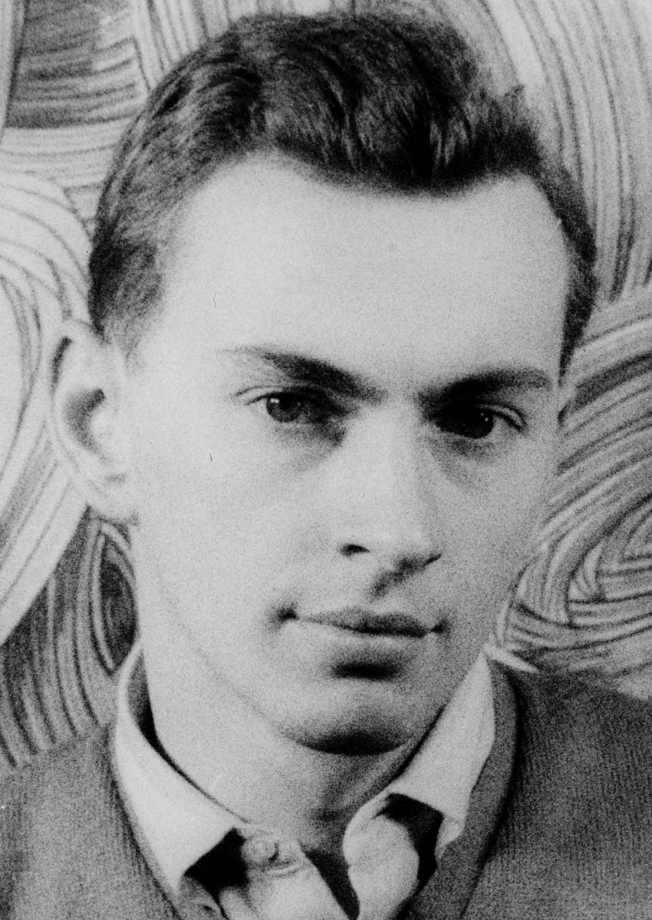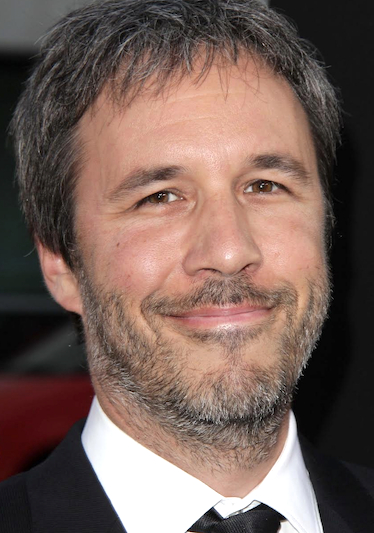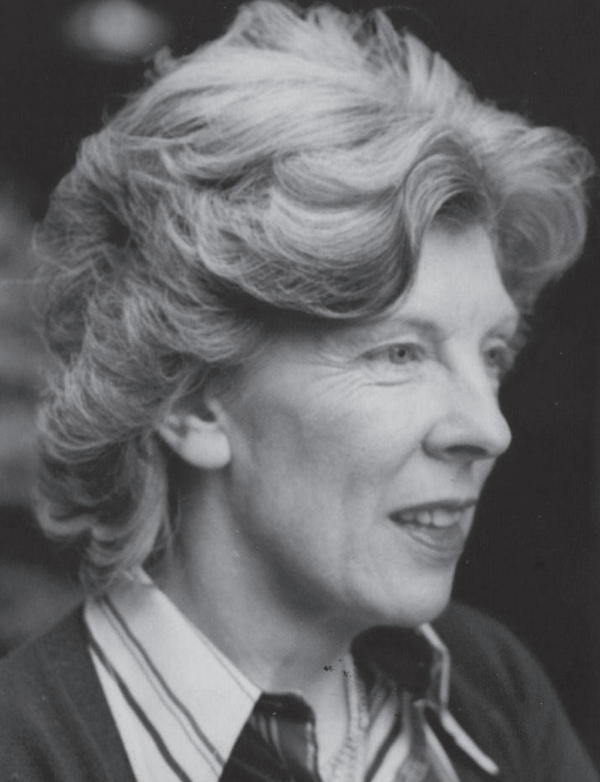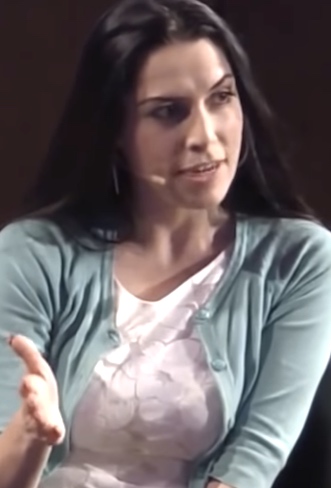October 3
Gore Vidal

On this date in 1925, writer Eugene Louis Vidal was born at West Point, N.Y., where his father was the first aeronautics instructor at the U.S. Military Academy. (He dropped his first and middle names when he was 14, exchanging them for Gore.) He largely grew up in the home of his grandfather, Sen. Thomas P. Gore, D-Okla. He graduated from Philips Exeter Academy in New Hampshire and joined the Enlisted Reserve Corps.
His first novel, Williwaw, was published when he was only 19. It was followed by the wave-making The City and the Pillar (1948), which featured a sympathetic gay protagonist. Vidal was the prolific author of many other novels and plays, many based on history and politics, and worked in TV and the movies. His novels include Julian (1964), Myra Breckenridge (1968), Burr (1974) and Live from Golgotha (1992), an irreverent satire imagining New Testament events if reported on TV.
A cousin of former Vice President Al Gore, he made some political runs, including a try for the U.S. Senate seat in California in which he came in second out of nine in the 1982 race. Vidal was perhaps best-known as a public intellectual and for his refreshing and acerbic interviews and one-liners, such as his famous remark about Ronald Reagan: “A triumph of the embalmer’s art.” “Probably no American writer since Franklin has derided, ridiculed, and mocked Americans more skillfully and more often than Vidal,” wrote Gordon S. Wood. (The New York Times, Dec. 14, 2003)
Vidal’s essays, such as “Pink Triangle and Yellow Star” (1981), are collected in Armageddon (1987). Palimpsest (1995) was his well-received autobiography. He rarely missed a chance to diss religion or monotheism: “I regard monotheism as the greatest disaster ever to befall the human race. I see no good in Judaism, Christianity, or Islam.” (Letter to Warren Allen Smith, 1954, Who’s Who in Hell.) (D. 2012)
PHOTO: Vidal at 23 in 1948; Carl Van Vechten photo.
“Christianity is such a silly religion.”
— Vidal, Time magazine (Sept. 28, 1992)
Denis Villeneuve

On this date in 1967, Canadian filmmaker Denis Villeneuve was born in Bécancour, Quebec, to homemaker Nicole (Demers) and Jean Villeneuve, a civil law notary. He made short films while attending a Catholic high school and studied science at a post-secondary school before enrolling in the cinema program at the University of Quebec in Montreal.
He made his directorial debut with “August 32nd on Earth” (1998), which premiered at the Cannes Film Festival. Villeneuve was disappointed with it and its follow-up “Maelström” (2000) and took a long sabbatical as a stay-at-home dad. He vowed to return “when I was ready to make a film I could be proud of.” (Internet Movie Database, Nov. 17, 2021)
His controversial but critically acclaimed black-and-white film “Polytechnique” (2009) about the shootings at the University of Montreal in 1989 received numerous honors. It reenacted events of the gun murders of 14 young women and the wounding of several others. “Incendies” (2010) garnered critical acclaim when it premiered at the Venice and Toronto film festivals, was nominated for a Best Foreign Language Film Oscar and was chosen by The New York Times as one of the top 10 best films of 2010.
Villeneuve followed with the crime thriller “Prisoners” starring Hugh Jackman and Jake Gyllenhaal. It was nominated for a 2014 Best Cinematography Oscar. He won Best Director for “Enemy,” also in 2014, at the Canadian Screen Awards. “Sicario” (2015) went on to gross nearly $80 million worldwide.
“Arrival” (2016), starring Amy Adams, was his sixth film to focus on a female character and garnered eight Oscar nominations, including Best Director. Villeneuve built and grew his career making films about, and led by, women, a reviewer wrote. “For me, masculinity is about control, and femininity is more of an embrace, the art of listening,” Villeneuve said. (New York Times, Nov. 10, 2016)
“Blade Runner 2049” (2017), the sequel to Ridley Scott’s “Blade Runner” (1982), did less well at the box office than it did with critics. (In a 2015 IndieWire interview, Villeneuve said ” ‘Blade Runner’ is almost a religion for me.”) He was named Director of the Decade by the Hollywood Critics Association in 2019.
His movie “Dune,” based on Frank Herbert’s novel, premiered in 2021 at the Venice Film Festival. He told Esquire magazine that “Nature is the god in ‘Dune’ and biology is the religion.” Villeneuve: “One of the big qualities of ‘Dune’ is the idea that I can approach the dangerous cocktail of religion being mixed with politics into sci-fi so I don’t offend anyone. That’s the advantage to science fiction; you can approach very hardcore subjects.” (Houston Chronicle, Oct. 20, 2021)
Villeneuve is married to Tanya Lapointe, a former journalist he met while she was working on “Arrival” as a production assistant. He has three children from a previous relationship. “Dune: Part Two” was released in 2024 and generated critical acclaim and success at the box office.
PHOTO: Villeneuve at the “Prisoners” premiere in 2013 in Beverly Hills, Calif.; photo by s_bukley/Shutterstock.com
“For me, god is nature, so I tried to make sure that there were moments that are magical because you want them to be. But you can also explain them from a naturalistic point of view.”
— Villeneuve, commenting on "Dune" in Interview magazine (Oct. 20, 2021)
Philippa Foot

On this date in 1920, philosopher and ethicist Philippa Ruth Foot (née Bosanquet) was born in Owston Ferry, England, to Esther (Cleveland) and William Bosanquet. Her maternal grandfather was U.S. President Grover Cleveland. Her mother, the only child to have ever been born in the White House, married her father, a member of the British Army’s Coldstream Guards and later the manager of a steelworks, in Westminster Abbey in 1918.
Raised in patrician circumstances and educated by governesses and at Somerville College-Oxford, she earned a degree in 1942 in philosophy, politics and economics. She worked as a researcher during World War II at the Royal Institute of International Affairs, sharing a London flat with future novelist Iris Murdoch. She married British military historian M.R.D. Foot in 1945 after he and Murdoch had broken up. The Foot marriage ended without children in 1960.
She started lecturing on philosophy at Somerville in 1947, a year after receiving her master’s, and rose to the positions of vice principal and senior research fellow before retiring in 1988. In 1974 she became a professor of philosophy at the University of California in Los Angeles, where she retired in 1991.
Foot posed her famous “trolley problem” in 1967, capturing the imagination of scholars outside her discipline. Described by The New York Times, it used “a series of provocative examples, the moral distinctions between intended and unintended consequences, between doing and allowing, and between positive and negative duties — the duty not to inflict harm weighed against the duty to render aid.
“The most arresting of her examples, offered in just a few sentences, was the ethical dilemma faced by the driver of a runaway trolley hurtling toward five track workers. By diverting the trolley to a spur where just one worker is on the track, the driver can save five lives.” The problem took on a life of its own, inspiring variations such as “the fat man” and a host of others.
“Foot was a giant of moral philosophy,” said her 2010 obituary in Philosophy Now magazine. “Her books include ‘Natural Goodness’ and two collections of essays, ‘Virtues and Vices: And Other Essays in Moral Philosophy’ and ‘Moral Dilemmas: And Other Topics in Moral Philosophy.’ These three relatively slender volumes represent decades of work at the very highest levels of philosophical sophistication.” She also wrote and lectured extensively on free will and determinism and was a pioneer in the field of virtue ethics.
Nikhil Krishnanis, a lecturer in philosophy at the University of Cambridge, described her as “temperamentally unsympathetic both to religious solutions and to mystical ones” and as “a secular philosopher of broadly liberal opinions.” (Aeon magazine, Nov. 28, 2017)
To others she was a rationalist or an atheist. Foot’s personal views on religion were nuanced and not worn on her sleeve. Nor was she simply dismissive of religion. In an interview with Philosophy Now editor Rick Lewis (Fall 2001), she said:
“What is right and wrong for different societies will often be different. Things will be justifiable in one situation and not in another. And, of course, one of the determining factors will be religion, what people believe the gods will do; will offend them or bring their wrath down on the community. After all, it would be totally wrong to bring the wrath of the gods on your community – so religion comes in, too.”
But her skepticism lurked beneath the surface: “I once asked [Oxford Catholic philosopher Michael Dummett], ‘What happens when your argument goes one way and your religious belief goes the other?’ And he said, ‘How would it be if you knew that something was true? Other things would have to fit with it.’ That I take it is the clue, that they think they know that and could as little deny it as that I am talking to someone now.” (The Philosophers’ Magazine, 2003)
She died at home in Oxford, England, on her 90th birthday. (D. 2010)
“Foot herself, however, is a ‘card-carrying atheist.’ ”
— "Interview With Philippa Foot," The Philosophers' Magazine, Issue 21, 2003
Francesca Stavrakopoulou

On this date in 1975, biblical scholar and atheist Francesca Stavrakopoulou (Stav-rah-kah-poo-loo) was born in Bromley, Greater London, to an English mother and a Greek father. “I wasn’t brought up religious at all. There were people in my family who were different flavors of Christianity, but not in a going-to-church-all-the-time kinda way. Or the bible being read every day. Just that kind of cultural Christianity that so many of us grow up with in Western society.” (What I Wanna Know online, Aug. 25, 2023)
Perhaps due to her heritage, she loved stories about Greek gods and goddesses. “And I just remember not being able to quite understand why there’s all this fuss about Jesus, because it seemed to me like this was completely normal in sort of mythological terms. Here’s a guy whose mum was immortal and whose dad was a god. So what? Why is he so special? How come this guy gets all the attention now and some of those great mythological figures from the past had disappeared?” (Ibid.)
After earning a doctorate in theology from the University of Oxford, she joined the Oxford faculty for several years before assuming a position at the University of Exeter, one she holds as of this writing in January 2025 as a professor in the department of classics, ancient history, religion and theology.
Her book “God: An Anatomy” (2021) won the PEN Hessell-Tiltman Prize celebrating the best nonfiction writing on any historical subject. It was named one of The Economist’s Books of the Year. “It’s the book I always wanted to write – to find out why this deity, out of all the ancient gods, is the one who managed to survive into the present day. I wanted to set God in his natural cultural habitat, and what we discover is that he was no different than the other gods in ancient southwest Asia,” she said in a University of Exeter post. (Dec. 21, 2022)
Penguin Random House called it “a vividly corporeal image of God: a human-shaped deity who walks and talks and weeps and laughs, who eats, sleeps, feels, and breathes, and who is undeniably male.” Stavrakopoulou believes that “very little, probably” of the Hebrew bible is historical fact, based on the contention that ancient writers had an understanding of “fact” and “fiction” very different from a modern understanding.
On Channel 4 in 2010, she posited that figures like Moses and King David did not actually exist. A former secretary of the British-based Society for Old Testament Study, she has appeared on BBC One to discuss topics such as “Is the bible still relevant?” “Is there a difference between a religion and a cult?” and “Are religions unfair to women?”
She took issue with this comment in a review by The Independent that included her physical appearance: “Clearly whoever commissioned a three-part series on biblical scholarship for BBC2 was entirely indifferent to the fact that it would be presented by someone who looks as if she’s shimmied out of one of the hotter passages of the Song of Solomon.” (The Guardian, Oct. 26, 2014)
A foul statement, Stavrakopoulou responded. “Essentially, the message is the same: Unless women dress modestly and conservatively, they look out of place in academia, because fundamentally, they don’t have the right bodies to be academic authorities. This infuriates me, and I refuse to accept it.”
In a long interview that more than amply displayed the depth of her religious scholarship exploring the mythical deities of classical antiquity as well as Christianity and Judaism, Stavrakopoulou said people were confused by her early on. “Even when I started my academic studies, when I did my first degree and then my master’s and then my doctorate and even doing postdoctoral work, people always said, ‘But you’re an atheist? Why would you be interested in the bible?’ … This collection of texts has shaped so much of our cultural assumptions and preferences and our cultural anxieties. And it just seems to me to be wrongheaded to think that an atheist wouldn’t be interested in the bible.” (Ibid. What I Wanna Know)
As a patron of both Humanists UK and Defence Humanists, Stavrakopoulou advocates for improved mental health services and nonreligious pastoral support for active and veteran military members and their families. Her husband is a former Royal Marines commando who suffered a life-altering injury while on duty. “When were you the happiest?” she was asked by The New Statesman in 2023. “The day I got married. I’m very soppy,” she answered.
She thinks the hate mail she gets, including threats of rape and death, stems from fear and deep-seated insecurity that maybe she’s right that their beliefs are mostly based on myth: “Religion is obviously terrible in all sorts of ways for all sorts of different people, but it’s not going anywhere. And so there is no point in trying to dismiss it and ridicule it, not least because not all religious people are bad, unthinking, stupid people. I know a lot of very deeply wonderful, caring, fantastic, clever people who also happen to be religious.” (Ibid.)
PHOTO: Stavrakopoulou in 2015 on London Thinks: A Scientist, an Atheist Biblical Scholar and a Vicar Walk Into an Ethical Society; Conway Hall photo under CC 3.0.
“Whether we like it or not, [the bible] matters. It’s like how Shakespeare matters, and the bible matters in that sense. So it’s a cultural icon, whether you believe it or not. But certainly, it’s not the divine word of God.”
— Interview, What I Wanna Know (Aug. 25, 2023)
